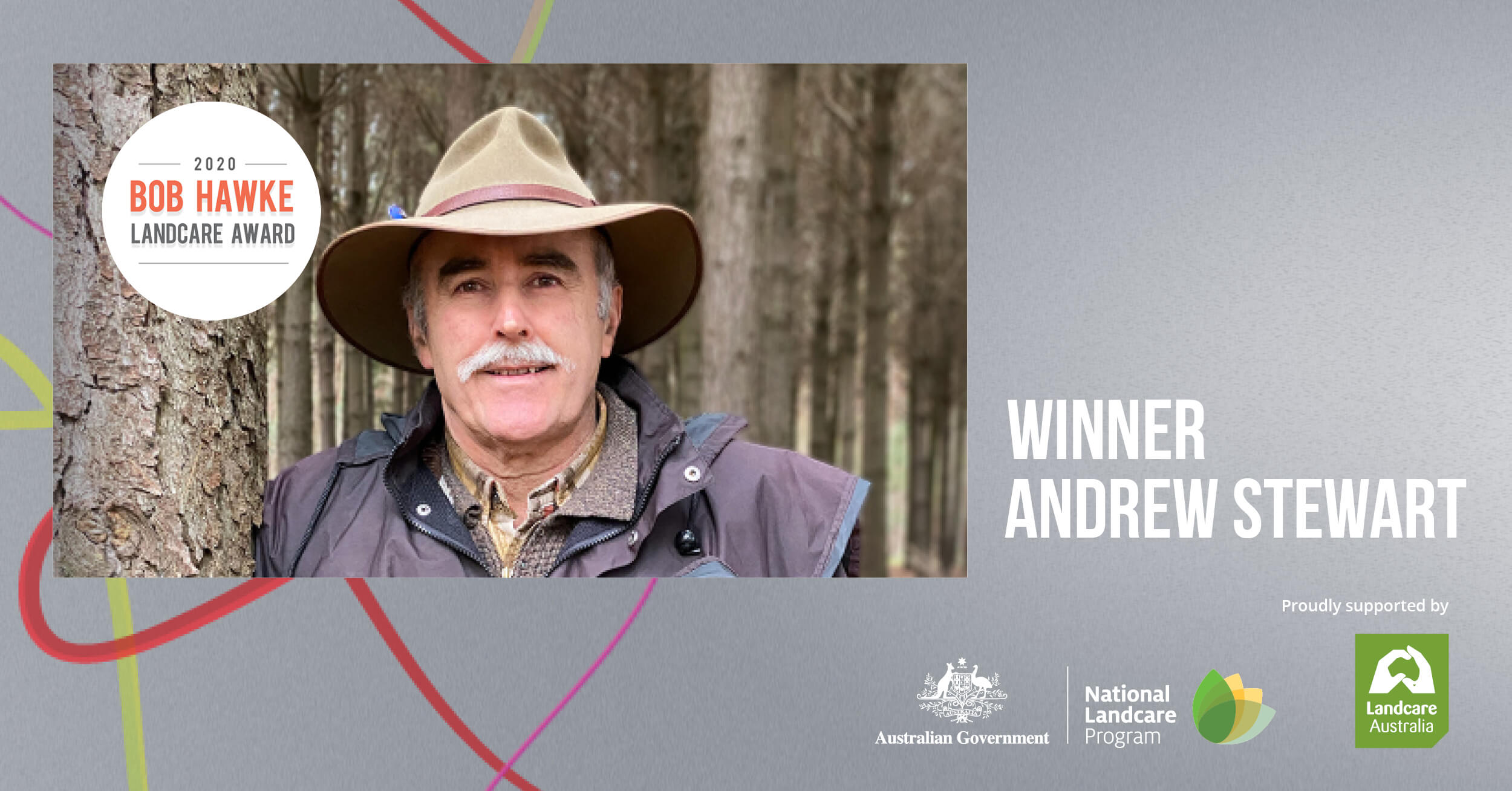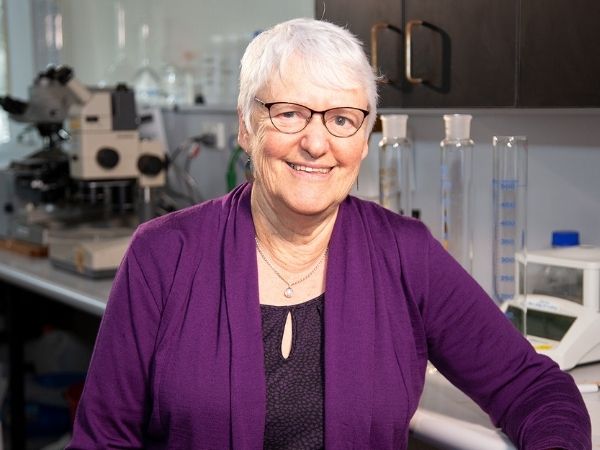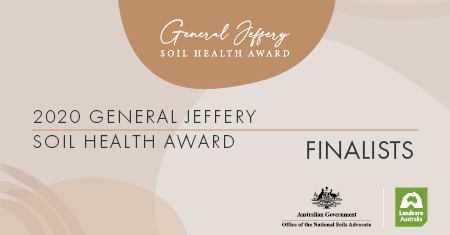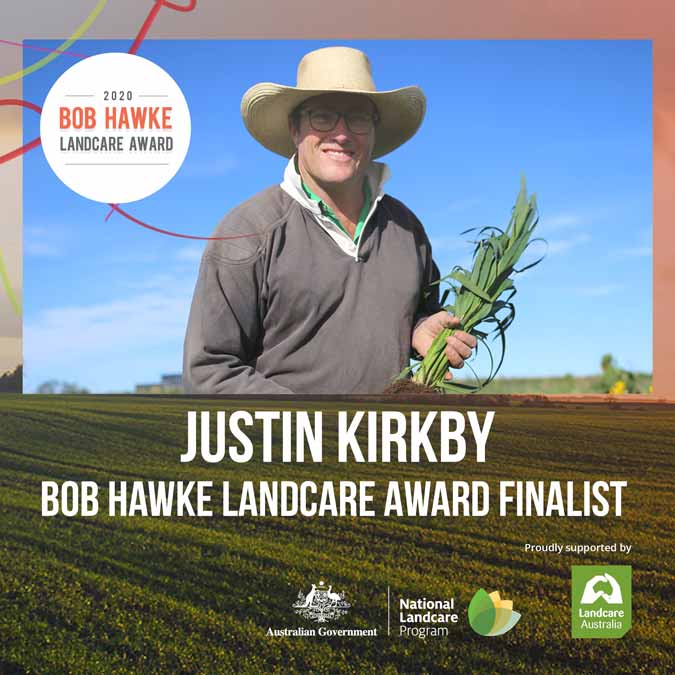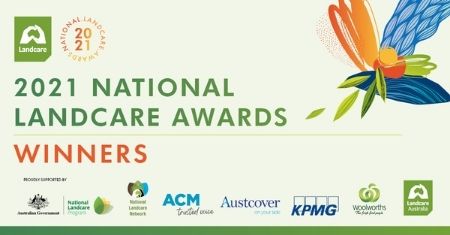
AUGUST 5 2021: Over 2,000 people from across the country came together online to watch the 2021 National Landcare Awards. Costa Georgiadis, popular ABC TV presenter and Landcare champion, hosted the event celebrating 75 state and territory nominees for their Landcare excellence.
At the ceremony, part of the two-day online National Landcare Conference, winners from 11 national diverse environment categories were announced including: the Australian Government Landcare Farming and Australian Government Individual Landcarer Award, Coastcare Award, KPMG Indigenous Land Management Award, Woolworths Junior Landcare Team Award, Austcover Youth Leadership Award and the ACM Landcare Community Award.
The 2021 National Landcare Awards and 2021 National Landcare Conference program has been delivered with support from the Australian Government’s National Landcare Program to support the landcare community connect, share insights and access the educational resource help capacity for individuals, groups and organisation involved in landcare.
KPMG Indigenous Land Management Award went to Wunambaal Gaambera Aboriginal Corporation, for their work on Wunambaal Gaambera country that covers 2.5 million hectares of key cultural and ecological land in the Kimberley region.
Floating Landcare in NSW landed the Australian Government Partnerships for Landcare Award for its program to restore weedy hotspots within national parks and on other public lands along the Hawkesbury estuary, Pittwater and waterways of the Central Coast in New South Wales.
Presented by Minister for Drought, Agriculture and Emergency Management, The Hon. David Littleproud MP, the prestigious Bob Hawke Landcare Award was bestowed with a $50,000 prize to Victorian Andrew Stewart, a Corangamite grazier for environmental and sustainable agricultural advancements on Yan Yan Gurt West Farm. His work on this 230-hectare grazing and agroforestry property, includes the establishment of 50,000 trees and shrubs, increasing woody vegetation across the farm from 3 per cent to 18 per cent.
Meanwhile, a leading University of Western Australia academic won the inaugural General Jeffery Soil Health Award. Emeritus Professor Lynette Abbott, an expert in the field of soil science and soil biology scooped this award, dedicated to Australia’s first National Soils Advocate, the late Major General the Honourable Michael Jeffery, AC, AO (Mil), CVO, MC (Retd).
While commending the National Landcare Award winners on their outstanding accomplishments, Minister Littleproud applauded the resilience of the Landcare community during this incredibly challenging period for the Landcare community, who continue to exhibit extraordinary stoicism in the face of adversity. And while celebrating the solidarity and camaraderie of the Landcare spirit, he praised the adaptability of everyone involved in landcare to come together online to celebrate the National Landcare Awards, giving communities across the country the opportunity to be part of something very special during Landcare Week.
The 2021 National Landcare Award Winners:
Australian Government Individual Landcarer Award: Basil Schur from Western Australia
Australian Government Landcare Farming Award: Amarula Dorpers from NSW
Australian Government Innovation in Agriculture Award: Redbank Farm from Tasmania
Australian Government Partnerships for Landcare Award: Floating Landcare from NSW
Woolworths Junior Landcare Team Award: Newham Primary School from Victoria
Austcover Young Landcare Leadership Award: Dhani Gilbert from the ACT
ACM Landcare Community Group Award: Red Hill Bush Regenerators from the ACT
Coastcare Award: Dhimurru Aboriginal Corporation from the Northern Territory
KPMG Indigenous Land Management Award: Wunambaal Gaambera Aboriginal Corporation from Western Australia
Bob Hawke Landcare Award Winner: Andrew Stewart from Victoria
General Jeffery Soil Health Award Winner: Professor Lynnette Abbott from Western Australia.
Read more information about the 2021 National Landcare Award winners.


